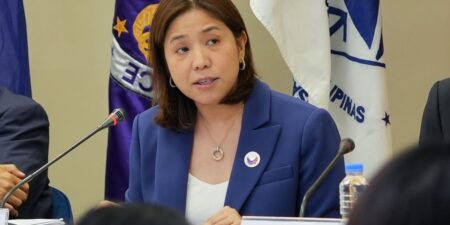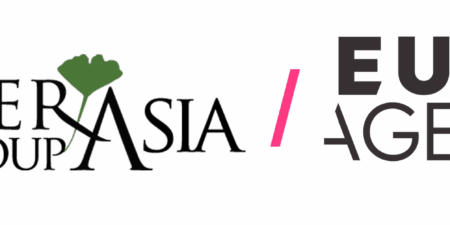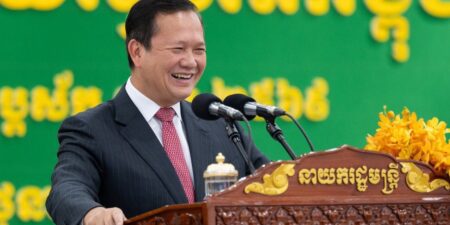The fourth ASEAN Digital Ministers’ Meeting released the much-anticipated ASEAN Guide on AI Governance and Ethics February 2, 2024. The guide is offered as a practical tool to help organizations design, develop and deploy artificial intelligence (AI) systems. It provides policymakers with national and regional recommendations that include financial and capacity support for businesses and cross-border collaboration through the establishment of an ASEAN working group on AI governance. It also shares case studies from organizations currently using AI systems and applications.
The guide’s release comes at an important moment when governments globally are engaged in fierce debates on how to develop proper AI governance frameworks. It aims to strike a balance by neither over- or underregulating AI development, encouraging the private sector to innovate while protecting the public from AI’s potential risks and dangers. Moving forward, the next important signpost to monitor will be the extent to which ASEAN member states choose to incorporate the guide’s principles into their national AI frameworks.
What You Need To Know
- The guide’s business-friendly tone and recommendations should resonate with the private sector. The guide, for starters, is entirely voluntary for companies to adopt. It also recognizes that a one-size-fits-all approach to AI governance is not ideal, noting that some requirements like establishing a multidisciplinary, centralized AI governing body could be more onerous for smaller organizations than larger ones. Furthermore, the guide acknowledges the importance of data confidentiality and intellectual property rights to businesses, which could be endangered by new AI regulations that require disclosing proprietary codes and algorithms. Lastly, the guide’s national recommendations are focused on supporting business, notably around AI startups, investment, research and development and workforce upskilling. The regional ASEAN working group on AI governance will consult industry partners for their views and input on new AI initiatives.
- Singapore’s advanced progress in AI readiness and development is noteworthy. The guide cites multiple initiatives in Singapore that advance AI development, such as the Model AI Governance Framework, which formed the basis for Singapore’s signature announcements at the World Economic Forum in recent years; the Certificate in AI Ethics and Governance; and the AI Verify Foundation. The Singapore government’s Smart Nation Group, the Ministry of Education and the private sector firm UCAREAI are among six organizations selected for the guide’s cases studies section. By comparison, the Philippines and Indonesia are represented in the case studies by just the Aboitiz Group and Gojek, respectively.
- ASEAN made good progress on a transformative technological issue that cuts across politics, government, the economy, business and society. Although the grouping is often challenged by its consensus-based approach to policymaking, the guide is an important first step in advancing the ASEAN Digital Masterplan 2025’s Desired Outcome (2.7) to, “adopt regional policy to deliver best practice guidance on AI governance and ethics, IoT spectrum and technology.” It also offers promise for future regional collaboration on AI policy development, which will be important in promoting the interoperability of AI frameworks. Whether that materializes will hinge partly on ASEAN members following through to establish the ASEAN working group on AI governance and leveraging the platform for substantive discussions.
- National AI governance frameworks are not yet in place, meaning a patchwork of frameworks within ASEAN is still possible. While the guide presents a light-touch approach to regulation and highlights the private sector’s important role as a driver of and contributor to AI development, it should be noted that it does not take precedence over existing or future laws and regulations related to AI. Individual members states, driven by domestic political considerations and interests, could roll out AI laws and regulations that may end up being less favorable to AI innovation and development. The varying levels of digital readiness among ASEAN members will also influence the pace of progress in developing and adopting national AI frameworks.
- Other regional developments, especially in the European Union, loom large amid a contested global space for influence on AI regulation. The guide’s release came on the same day EU member countries agreed on the technical details of the European Union Artificial Intelligence Act (EU AI Act). Should the European Parliament pass the EU AI Act in April, it could become a key global benchmark for AI legislation. Its influence could be on par with the 2018 EU General Data Protection Regulation (EU GDPR), which has become model privacy legislation for many countries to emulate, including some in ASEAN. Within ASEAN, there is also subtle contestation on which national framework could prove influential regionally. While Singapore stands out with its current level of progress in advancing voluntary frameworks, the Philippines announced its intention to propose an ASEAN-level legal framework when it chairs the group in 2026. Separately, countries like Thailand and Indonesia are working on draft AI frameworks domestically.
BGA’s Singapore Team was closely tracking the ASEAN Digital Ministers’ Meeting on the ground. Below, Associate Director Heidi Mah provides her insight on the ASEAN AI Guide and key takeaways from the event:
EXPERT INSIGHTS
Heidi Mah, Associate Director, BGA Singapore
The AI guide suggested a light-touch and flexible approach to manage AI risks, reflecting the region’s fragmented policies and capabilities. Some countries favor a more market-driven approach, while others prefer to regulate AI from the outset. The Philippines recently said it plans to introduce an ASEAN AI legal framework based on its own draft national legislation, which stands in sharp contrast to the approach Singapore has taken to balance risks and innovation. These divergent policy approaches within ASEAN may impede progress in the upcoming ASEAN Digital Economic Framework Agreement (DEFA) negotiations. Companies can and should consider working closely with the ASEAN Secretariat and ASEAN member states to provide training and capacity building, better placing them to shape DEFA so it is attuned to corporate needs.
More broadly, this year’s ASEAN Digital Ministers’ Meeting, chaired by Singapore’s Minister for Communications and Information Josephine Teo, saw increased ministerial-level attendance from ASEAN members and regional partners, including Korea’s Minister for Science and ICT Lee Jong-ho and Japan’s State Minister for Internal Affairs and Communications Watanabe Koichi. The enthusiasm of major economies to engage ASEAN underscores how the region is increasingly being viewed as a significant digital economic bloc. ASEAN strengthened its partnership with China by signing a memorandum of understanding on cooperation in communications and digital technology, focusing on areas such as cybersecurity, data security and digital literacy. It also updated its joint guide to ASEAN model contractual clauses and EU standard contractual clauses, offering best practices for businesses operating across both regions to consider when operationalizing safeguards required under both sets of contractual clauses. Conversely, ASEAN’s engagement with the United States was discouraging but not unexpected, with no deliverables or new projects committed.
Several notable deliverables came from the fourth ADGMIN, particularly in data governance, online scams, cybersecurity and emerging technology. An ASEAN working group on anti-online scams, initially proposed by Thailand during the third ADGMIN, was established for the ASEAN members to collaborate on combating scams across digital and telecommunications channels. Separately, the ASEAN Regional Computer Emergency Response Team (CERT) Financial Model was endorsed, with Singapore committing SGD 10 million (US$7.4 million) over the next decade to fund the initiative. Likely to be co-located within the ASEAN-Singapore Cybersecurity Center of Excellence, the ASEAN Regional CERT could enhance each member’s ability to adapt to the evolving cyber threat landscape through timely information sharing on cyber incidents, capacity-building initiatives and exchange of best practices to protect critical information infrastructure.
We will continue to keep you updated on regional AI developments in APAC as they occur. If you have any questions or comments, please contact BGA Senior Director Jay Harriman at jharriman@bowergroupasia.com.
Best regards,
BGA Enterprise Technology Team


























